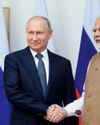
Introduction
The triumphant soft landing of India’s Chandrayaan-3 on the lunar surface marks, not just a giant leap for India’s space exploration, but a monumental stride for all of humanity.
India now stands as the fourth nation, following the USA, the former Soviet Union, and China, to accomplish the awe-inspiring feat of landing on the moon’s surface. Yet, what sets this achievement apart is India’s pioneering venture into the uncharted territory of the moon – the enigmatic south-polar region. A region of darkness and ice untouched by human exploration until now. This is where Chandrayaan-3, the first man-made space object, has made its home for all of eternity to come.
Exploring Uncharted Territory
The south polar region of the moon has been known to be a notoriously dangerous zone to land on safely. Unlike the previously uncrewed landers and the Apollo astronauts, who landed on the wide and flat expanses in the equatorial regions of the moon’s Earth-facing hemisphere, Chandrayaan-3 had to land on the heavily boulder-strewn fields.
The challenge to navigate the polar regions lies not just in the rocky terrains, but also in the water-hosting regions that receive little to no sunlight. Hence, leading the scientists to speculate in the past that they could contain large reserves of frozen water. These speculations were confirmed to be true by ISRO’s Chandrayaan-1 orbiter in 2008.
This story is from the September 2023 edition of Extraordinary and Plenipotentiary Diplomatist.
Start your 7-day Magzter GOLD free trial to access thousands of curated premium stories, and 9,000+ magazines and newspapers.
Already a subscriber ? Sign In
This story is from the September 2023 edition of Extraordinary and Plenipotentiary Diplomatist.
Start your 7-day Magzter GOLD free trial to access thousands of curated premium stories, and 9,000+ magazines and newspapers.
Already a subscriber? Sign In

AI in Diplomacy
How Technology is Transforming International Relations

Climate-Induced Migration A Growing Concern for South Asia
One of the most difficult issues facing the world amid the polycrisis is climate change.

Climate-Induced Migration: A Growing Crisis in South Asia
People have been migrating over the years for various reasons.

PROJECT 2025 A Blueprint for a Second Trump Administration
With former President Donald Trump defeating Vice President Kamala Harris in the race for the White House, there is a policy agenda crafted in the run-up to the election that its organizers say is ready for the next Republican to hold the presidency called “Project 2025”.

The India-Russia Partnership
Adapting to a Multipolar World Order

Sustainable Development Goals 2030
India's Progress and Challenges

South Africa's G20 Presidency
The G20 is on, and all eyes are on South Africa, the anchor runner on Relay Team South, much as all eyes were on V.K. Vismaya when she grasped the baton from Arita Gayakwad during the 2018 Asian Games.

RENEWABLE ENERGY
India's Path to a Sustainable Future

Indonesia's Approach to the Global South and Its Implications in the Indo-Pacific Region
Indonesia occupies an important and significant position in the Global South, and its important geo-strategic position in the Indo-Pacific region will impact the geopolitics of the region and the Global South.

Promoting Ethiopia to India - the biggest Potential in Africa
Recent reforms in the banking sector have further bolstered Ethiopia's investment climate. The National Bank of Ethiopia has revised longstanding policies, now permitting international banks to operate without restrictions.
